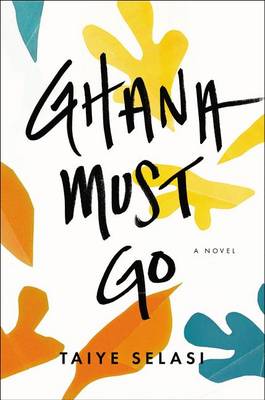Reviewed by moraa on
I have quite a few thoughts on this books so I'm going to split this review into two sections: likes and dislikes.
What I liked:
1. Characterisation
-I don't often gravitate to books with a large cast of characters because most of the time a good portion of them don't get the story they deserve
-Ghana Must Go was different and I must say the author handled the characters with such ease
-also, every character arc had a fairly good resolution which is delighted me
2. Plot
-this is more a character-driven novel than a plot-driven one so there's not much to analyse in terms of the plot but I did like the slow revelations Selasi gave us every now and then, she knows how to give her readers enough to both follow along and keep them guessing
-certain sections were a bit slower than others but I think that has more to do with #4 below than anything else
What I disliked:
3. Depiction of mental health
-the depiction of mental health in this book was not good
-mental health is such a dicey subject and to explain it away with a few sentences is, in my opinion, doing it poor justice
-some will say it's not the main point of the story to which I say "take it out then!"
-in real life, people (not just with mental illnesses but other illnesses) battle a host of symptoms daily, they have to restructure their entire lives from what they eat and wear to how much activity they can do, around their health
-in this book, self-harm, depression and bulimia are explained away in a couple of passages without showing much of how these characters struggle with these illnesses
-I mean, the author mentions a few pills here and there and then we draw some conclusions and that's it
-the closure at the end was even less realistic: Sadie dancing and feeling good about her body will not cure her bulimia in an instant and Taiwo and Kehinde having a conversation will not cure self-harm or depression in an instant either THAT'S NOT HOW IT WORKS! And it's not that the author stated this at any point but it's a very clear implication from how she fails to touch on the finer points of struggling with such illnesses
-this book was on its way to a 4-star review but as soon as I hit 70% and realised we wouldn't be getting a proper resolution, I bumped it down
-(apologies for the rant, this one of my biggest pet peeves in literature)
4. Writing Style
-there were entire passages I found unnecessary made only worse by the flamboyant word choice
-sentence structure was also a major problem - granted Selasi played with a few formats here and there but majority of the sentences were too long with little respite (i.e. shorter sentences in between)
-the result is that the book was difficult to read and the pacing felt a little off
5. Structure
-I didn't quite hate this but I didn't like it either so I'm going to put it here
-on the one hand, the flashback structure suited the book well enough, but:
-once more Selasi's writing made them difficult to get through those particular sections and I spent many a page impatient to get back to the present
-certainly this book is something of a coming-of-age tale (and for characters who are already "of age", it's about figuring out their identity or reconciling with their past) but I would have been far more engaged if Selasi had cut down on the purple prose
-(I did love the sections about Taiwo in law school though, those were lovely to read)
Content warnings: sexual abuse, allusions to self-harm, bulimia
Reading updates
- Started reading
- 20 May, 2020: Finished reading
- 20 May, 2020: Reviewed
